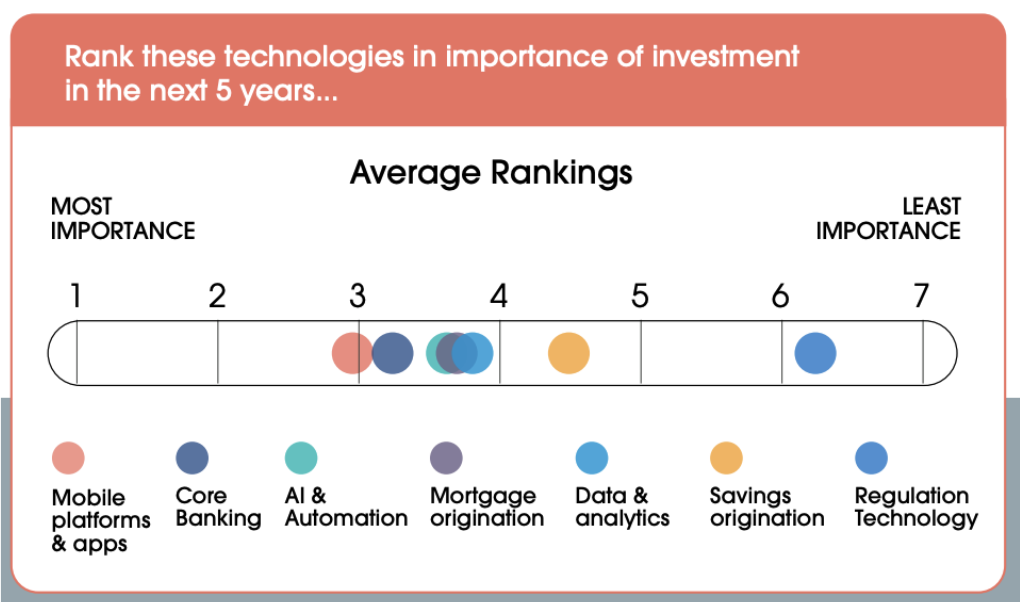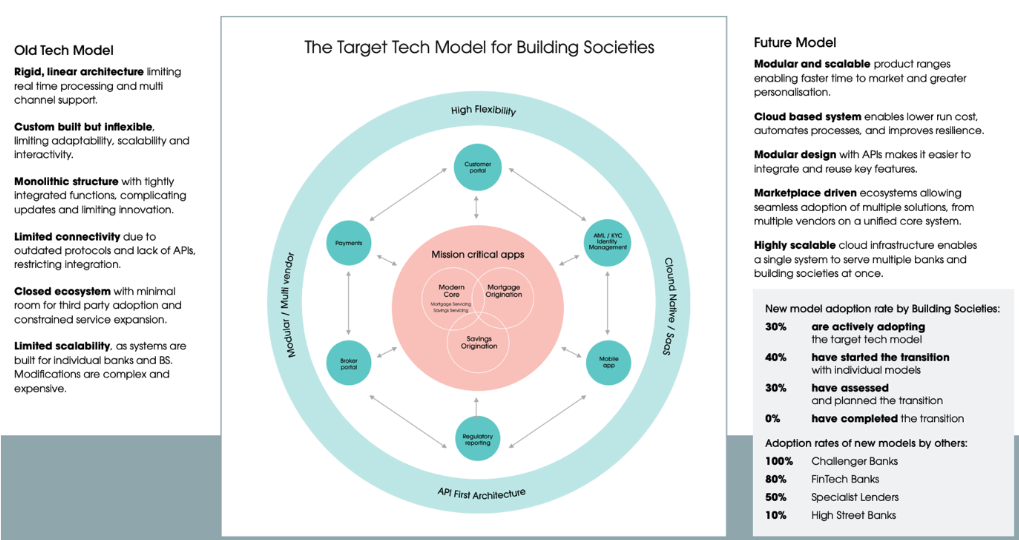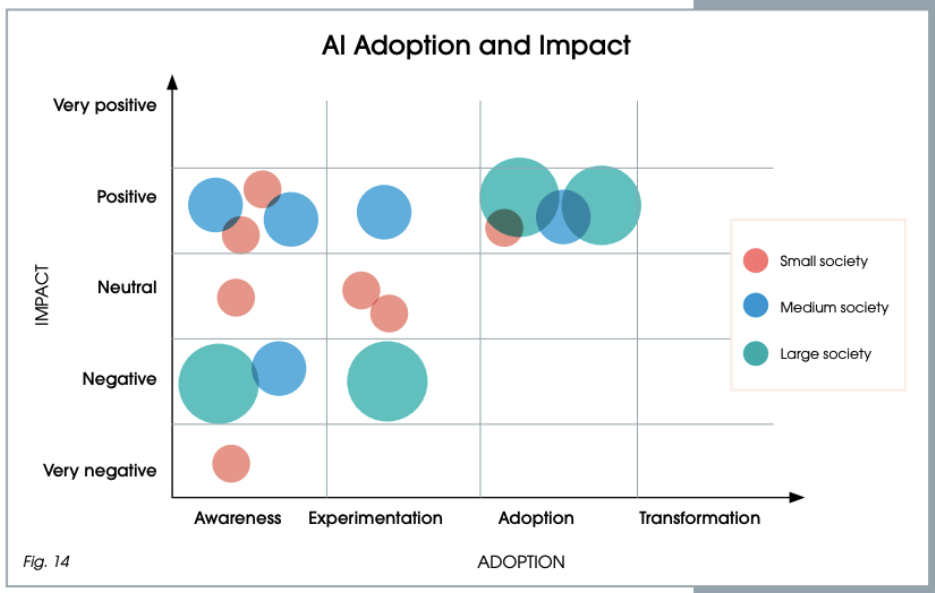
In the blog our focus is on Technology, a cornerstone of competitiveness, member engagement, and operational excellence across the sector. This chapter of the report was sponsored by Monument Technology.
Chapter Summary: Technology
Investment in technology has been a central strategic focus in recent years. It was one of the most prominent topics in our interviews with chief executives, and the majority of societies have recognised their current tech stack is in part or in full no longer fit for purpose and are either assessing how legacy tech can be replaced, or are in the process of replacing it.
Iain Kirkpatrick, CEO, Market Harborough Building Society, said:
“We’ve invested in technology, to make ourselves more efficient, more streamlined and more cost efficient”

Strategic Priority and Investment Trends
Technology is universally recognised as a strategic priority by building societies. Investments focus on modernising core systems, improving member-facing platforms, and enhancing data analytics. The pace of technological adoption has accelerated, driven by rising customer expectations and operational challenges.
Susan Allen, CEO, Yorkshire Building Society, explained why this is important in the context of the mortgage market:
“The mortgage market could change a lot in the next 10 years. There will be higher expectations for real time decision making and more data connected through open banking and open finance.”
Digital Channels and Member Experience
Improving the digital experience is a top priority. Mobile apps, online self-service portals, and seamless onboarding tools are key focus areas. Building societies aim to ensure digital touchpoints are as intuitive and secure as their high street counterparts.
Julie-Ann Haines, CEO, Principality Building Society, said:
“Tech is becoming increasingly more personalised, so offering a more tailored experience to our members is important.”
AI and Automation
Artificial Intelligence is emerging as a significant area of interest, particularly for process automation and decision support. Early use cases include document verification, fraud detection, and automated underwriting. While still in its infancy, AI is expected to play a transformative role in the years ahead.
Stuart Haire, CEO, Skipton Group, explained how they are preparing themselves:
“We’ve built the policies and procedures to anticipate the growth of AI, covering the ethics, principles, and governance. We do believe it’s going to have a material impact on the society.”
Paul Wheeler, CEO, Mansfield Building Society, highlighted the challenge of data quality:
“Good quality data is critical for building societies. If you’re laying AI over the top of poor data, you’re going to get inaccurate results.”
Legacy Infrastructure Challenges
Many societies continue to operate on legacy systems that limit flexibility and speed. Modernising these platforms is essential but complex, requiring significant planning, resourcing, and strategic alignment.
Paul Denton, CEO, Scottish Building Society, told us:
“The introduction of better processing technology has enabled our growth, and we didn’t need to increase our headcount.”

Cybersecurity and Compliance
As digital channels expand, cybersecurity and regulatory compliance remain top concerns. Societies are investing in robust security frameworks, staff training, and ongoing risk monitoring to maintain trust and safeguard sensitive data.
Collaborative Technology Solutions
Several building societies are adopting shared technology platforms or collaborating with fintech partners to reduce cost and accelerate innovation. These models allow societies to leverage external expertise while maintaining control over their digital evolution.
What next?
Continued investment in technology is a key component of continuous improvement and will play an increasingly critical role as societies seek to modernise their operations. Societies must embrace transformation as an ongoing journey, and addressing legacy systems and technical debt is important for long-term success.
AI is no longer a future consideration, it is a present risk and opportunity, and building societies can prepare to manage the change to enhance their organisations. Preparing for AI adoption requires a focus on AI principles and data quality, and establishing ethical guidelines can ensure that AI systems are introduced fairly with reduced risk of bias or misuse.
This is Blog 8 in our nine-part series covering the Building Societies Report 2025. The series will include the following blogs:
- Blog 1: Strategy & Mutuality
- Blog 2: Mortgages
- Blog 3: Savings
- Blog 4: Branch of the Future
- Blog 5: Homebuying Process
- Blog 6: Green Finance
- Blog 7: Diversification & Collaboration
- Blog 8: Technology
- Blog 9: Regulation, Policy & Risk
The Building Societies Report 2025 was created in partnership with the Building Societies Association and made possible by the support of sector sponsors including: BJSS, Digilytics, Finova, FintechOS, FIS, GDS Link, Mambu, Mast, Monument Technology, Mutual Vision, MQube, nCino, Ohpen, PEXA, Phoebus, RSM UK, SBS, Target Group, Temenos , Unblu, Unisys, and Vilja Solutions.
